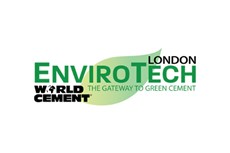Afghanistan’s cement industry fails to attract major investors
Published by Katherine Guenioui,
Editor
World Cement,
A call for investors in Afghanistan’s cement industry has met with little interest, as the country continues to struggle with security issues that it will be left to deal with alone following the 2014 withdrawal of NATO troops.
The country is rich in mineral deposits, including lithium, iron, copper, niobium, gold, gemstones and, of course, limestone. This does not seem to have won over major international investors, who are concerned that the post-2014 security scenario will significantly hamper business opportunities.
The Mines Ministry has issued a near-billion dollar cement tender, and proposed excellent terms such as free currency conversions and 100% capital repatriation. Minister Wahidullah Shahrani promised that the tender would be conducted in a ‘very transparent and clear manner’, according to a Reuters report, which also stated that international experts had been brought in to ensure the terms would be favourable to foreign investors. However, major investors continue to shy away, leaving the way clear for smaller investors who are prepared to take on the risks of operating in Afghanistan.
Cautionary tales are in evidence in the oil and copper industries where Chinese firms keen to access the country’s wealth of resources made major deals that have both been brought to a standstill. Afghanistan’s cement demand far outstrips supply, costing the country around US$1 billion a year for imports. Three cement plants have been tendered – enough to meet demand if they all go into production – but investors must be confident they won’t experience the same problems as the Chinese before they go ahead.
Written by Katherine Guenioui
Read the article online at: https://www.worldcement.com/africa-middle-east/23092013/investors_shy_away_from_afghanistan_cement_industry_202/
You might also like
The World Cement Podcast
A podcast series for professionals in the cement industry featuring short, insightful interviews. Subscribe on your favourite podcast app to start listening today.


